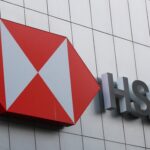
Stock-index futures pointed to a modestly lower start for Wall Street on Tuesday as investors remain focused on the global economic outlook, the U.S.-China trade fight and growing concerns over the potential for Beijing to crack down on protests in Hong Kong.
Futures on the Dow Jones Industrial Average YMU19, -0.10% were down 32 points, or 0.1%, at 25,832, while S&P 500 futures ESU19, -0.08% lost 2.8 points, or 0.1%, to 2,877.75. Nasdaq-100 futures NQU19, -0.14% declined 10.5 points to 7,556.5, a decline of 0.1%.
“Developments in the financial hub of Hong Kong are adding to an already tense geopolitical picture amid ongoing U.S.-Sino trade tensions. Investors are once again pulling out of riskier assets such as equities,” while flows into haven assets are on the rise, said Fiona Cincotta, senior market analyst at City Index, in a note.
Read: How Hong Kong clashes could wallop the U.S. stock market
Protesters thronged Hong Kong International Airport for a second day in a row Tuesday, clogging the departure area a day after they forced the transport hub to shut down entirely as they called for an independent inquiry into alleged police abuse during this summer’s waves of protests.
Opinion: A Tiananmen ‘solution’ in Hong Kong would destroy its economy
Worries about Hong Kong and other geopolitical concerns, including a plunge by the Argentine Peso USDARS, +0.0135% following a poor showing by pro-business President Mauricio Macri in a primary election on Sunday, were blamed in part for a downbeat start to the week on Wall Street.
See: Argentina fund swoons as Macri suffers primary defeat
On Monday, the Dow DJIA, -1.48% slumped 389.73 points, or 1.5%, to end at 25,897.71, while the S&P 500 SPX, -1.22% declined 35.56 points, or 1.2%, to finish at 2,883.09. The Nasdaq Composite COMP, -1.20% closed at 7,863.41, a fall of 95.73 points or 1.2%.
Concerns around Hong Kong are adding to worries about the global economic outlook, which were also reinforced by downbeat data from the eurozone’s largest economy. The ZEW indicator of German economic sentiment fell to -44.1 in August, down from -24.5 in July and marking the lowest reading since December 2011. Economists polled by FactSet had looked for a -28 reading.
“Today’s very poor ZEW readings highlight the continuing uncertainty hanging over the bloc with sentiment indicators so far suggesting that a pickup in growth in H2 2019 is not on the cards,” said Nicola Nobile, lead eurozone economist at Oxford Economics, in a note.
European stocks were under pressure for a third straight session Tuesday, with banks again leading decliners. Germany’s DAX DAX, -0.72% index was down 0.9%, while the pan-European Stoxx 600 SXXP, -0.52% fell 0.7%.
Asian markets declined as investors kept an eye on developments in Hong Kong, with the Hang Seng Index HSI, -2.10% falling 2.1%, bringing its August decline to 9%.
Investors piled into Treasurys on Monday, keeping pressure on yields and flattening the yield curve — a move that underlined worries about the economic outlook. Pressure on rates was also particularly negative for shares of banks, who see lending margins hit.
Haven-related flows continued Tuesday, with the yield on the 10-year Treasury note TMUBMUSD10Y, -0.25% off around 0.4 basis point at 1.634%. Other traditional havens were also on the rise, with gold futures GCZ19, +1.36% up around 1.6% and the Japanese yen USDJPY, -0.11% gaining ground versus rivals.
Shares of CIT Group CIT, -2.04% were expected to be in focus after it announced its CIT Bank N.A. subsidiary was in a deal to buy Mutual of Omaha’s savings bank subsidiary, Mutual of Omaha Bank, for $1 billion in cash and stock.
Shares of Advance Auto Parts Inc. AAP, -1.50% were off around 4% in premarket action after reporting second-quarter earnings and sales that fell short of expectations and trimmed its full-year outlook, while announcing a new $400 million stock buyback program.
The economic calendar features the July consumer-price index, due for release at 8:30 a.m. Eastern. Economists surveyed by MarketWatch, on average, forecast a 0.3% rise after a 0.1% increase in June. The core reading, which strips out food and energy costs, is forecast to show a 0.2% rise after a 0.3% June increase.
The National Federation of Independent Business said its Small Business Optimism Index rose 1.4 points in July to 104.7 after slipping in June.







